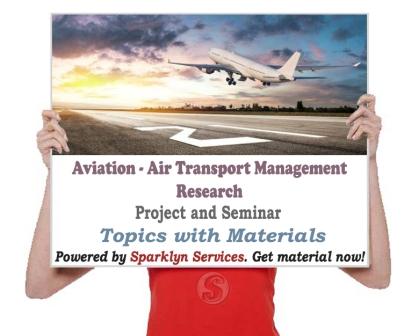1.1 Introduction
Artificial intelligence (AI) is an extensive computing component responsible for the creation of intelligent machines capable of performing tasks that require human ingenuity. AI is a multi-disciplinary science with many approaches, but advances in machine learning and in-depth learning create great demand in the current and current technology industry. AI is a branch of computer science the act of duplicating or mimicking human intelligence in machines.
As a prelude to other parts of this study, this chapter will discuss the background upon which this study was initiated, the statement of problems that led to this study, the Aim and Objectives of the study. Others are Significance of the study, Scope of work, Research hypothesis and questions, Limitations of the Study and Definition of technical terms.
1.2 Background of Study
Today, leading airlines are exploring how artificial intelligence can help them keep pace with customer demand and improve operational efficacy, speed and customer satisfaction. Below are a few changes we have seen, and what to expect in the near future. The travel industry as a whole is disrupted by AI. From automobiles to railways, the way we get around is changing for the better. While the race for an autonomous car and improvements to our driving experience remains in the headlines, the airline industry is making strides as well (Socialhospitality, 2021).
AI-based virtual assistants help airline companies improve the productivity and efficiency of their pilots by reducing their repetitive tasks, such as changing radio channels, reading wind forecasts, and providing position information on request, among others. These recurring jobs can be handled by AI-enabled virtual assistants. Companies such as Garmin (US) offer AI-enabled audio panels, which are useful for pilots (Socialhospitality, 2021).
Artificial Intelligence (AI) continues to evolve and expand, companies are seeing big changes in their field. Big name brands are investing in AI technology to enhance their products and services to better serve their customers. AI is being explored in the commercial airline segment of the aviation industry and is being integrated across multiple areas including customer service, airport and flight operations. It’s projected that the cost of airport development, specifically improving and modernizing existing infrastructure and operations, will exceed $1 trillion over the next fifteen years. While the leading commercial passenger airlines are relatively early-adopters of AI, industry projections depict a business environment primed for innovation and automation (Socialhospitality, 2021).
Machine learning feeds computer data and statistical techniques are used to help you determine how to continuously appeal to a task, unless specifically designed for that task, eliminating the need for multiple lines of written code. In-depth learning can be a form of machine learning that uses inputs using health- inspired neural specifications. Neural networks consist of various layers in which information is processed, allowing the machine to go deeper into its learning, making connections and adding weight to positive results.
Therefore, in Air Peace Airlines where the research was carried out, the activities that was conducted is to know the Impact of Artificial Intelligence and Macune Operation in the Aviation Industry.
1.3 Statement of Problems
Investigation reveals the challenges of the Impact of Artificial Intelligence and Macune Operation in the Aviation Industry research work which entails that, many aviation industry domains will be affected by this emerging technology. The air transport system is facing new challenges: increasing air volume, heavy environmental standards, growing systems complexity, greater focus on competition, AI can provide opportunities for it.
1.4 Aim and Objectives of Study
The aim of the study is to investigate the Impact of Artificial Intelligence and Macune Operation in the Aviation Industry using Air Peace Airlines as a case study. In achieving this aim, the following specific objectives were laid out as follows:
- To examine the use of artificial intelligence in the aviation industry
- To assess the impact of machine learning in aviation industry
- To analyze the impact of AI-Human Collaboration
- To examine the future aspects of Aviation by Artificial Intelligence
1.5 Research Questions
The study came up with research questions so as to be able to ascertain the above stated objectives. The specific research questions for the study are stated below as follows:
- Does machine learning positively impact aviation industry?
- What are the uses of artificial intelligence in the aviation industry?
- What is the impact of AI-Human Collaboration towards aviation industry?
- What are the future aspects of Aviation by Artificial Intelligence?




